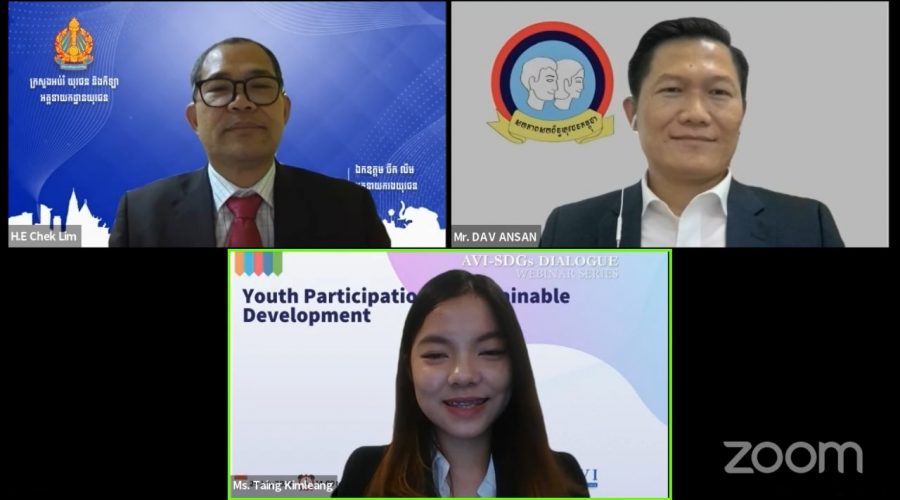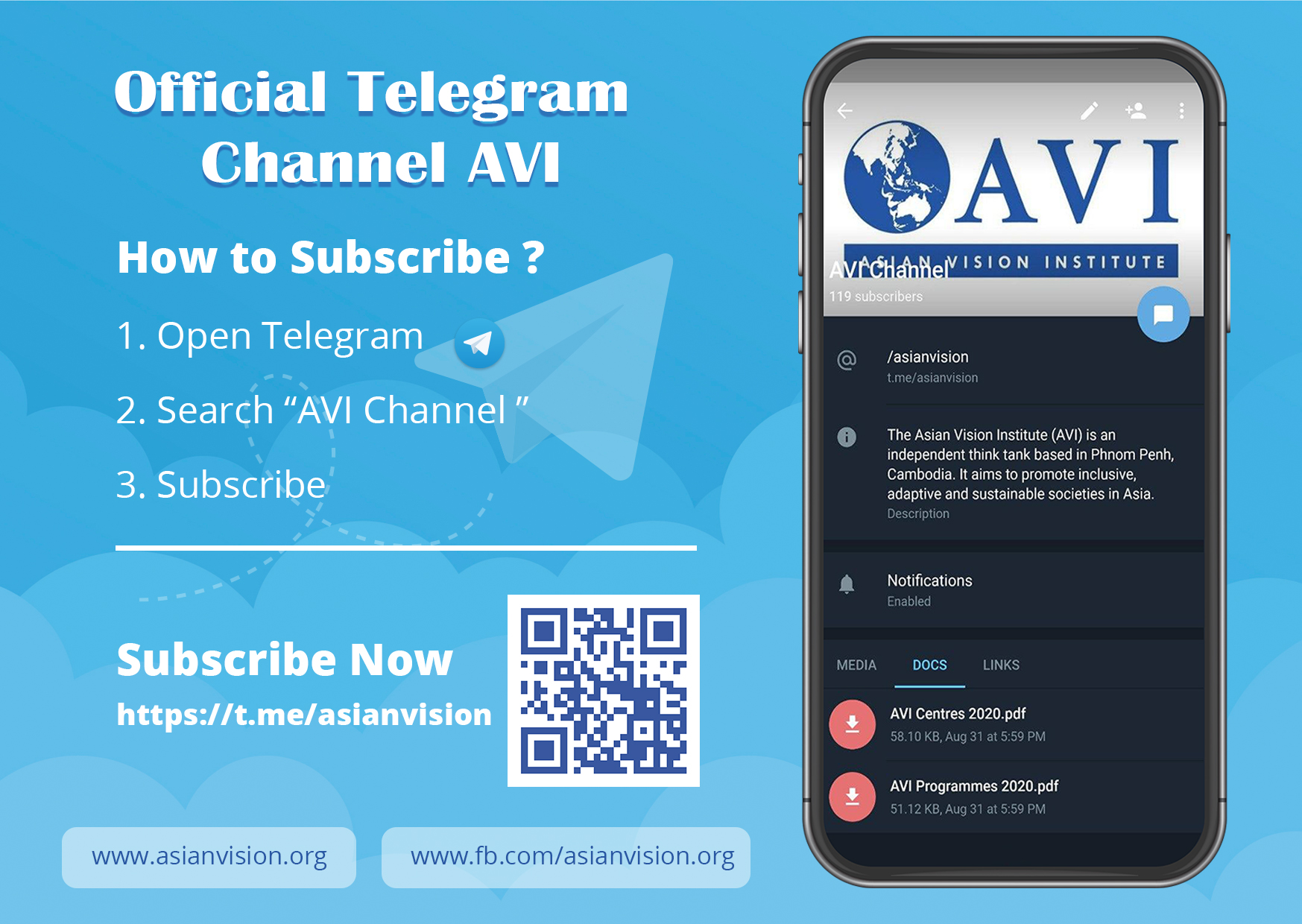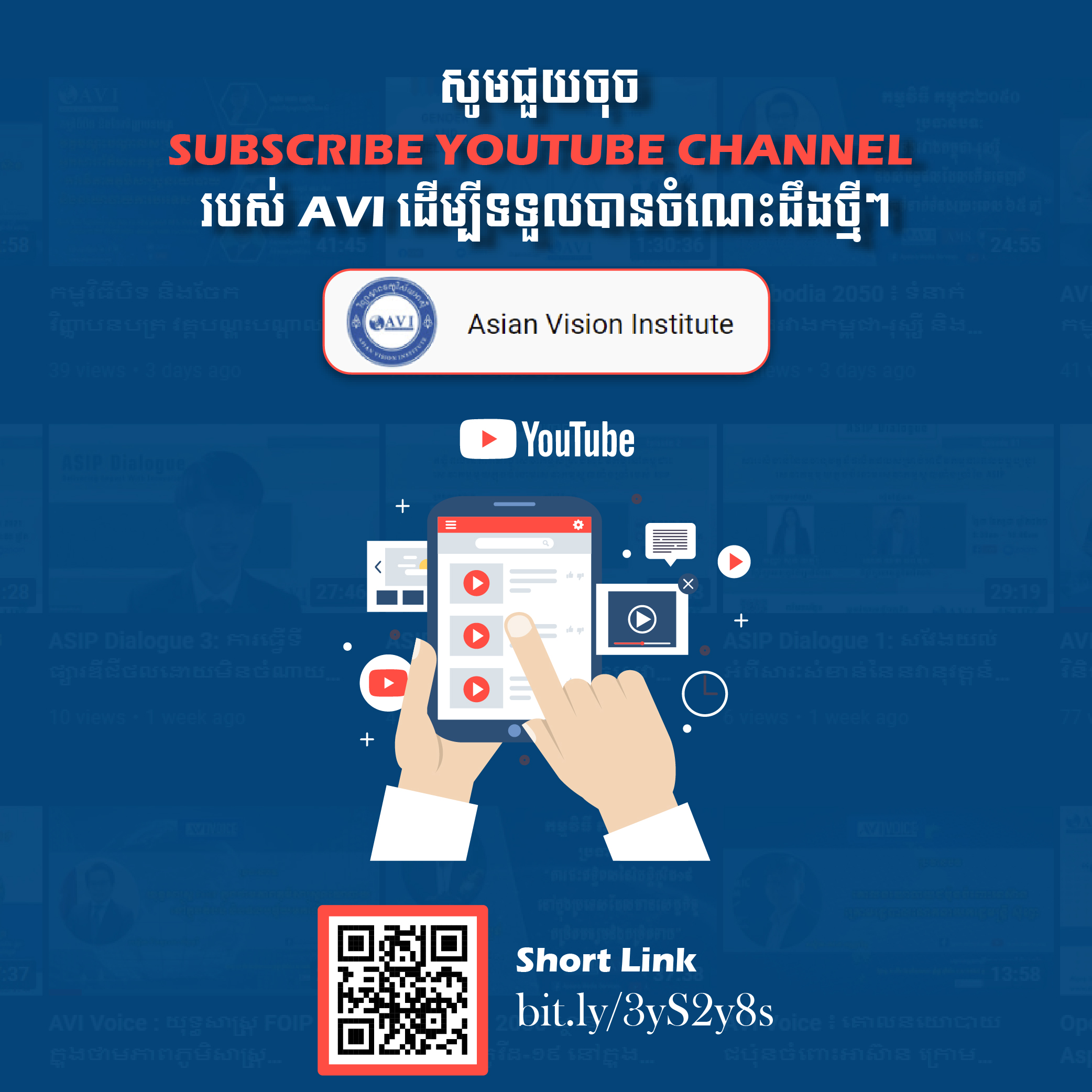On Friday, 29th July 2022, the Centre for Sustainable Development Studies (CSDS) of Asian Vision Institute (AVI) organized the fourteenth AVI-SDGs Dialogue webinar series on “Youth Participation in Sustainable Development” via online Zoom and Facebook live stream. The distinguished panellists for this webinar include H.E. Mr Chek Lim, the Deputy Secretary General of the General Secretariat of National Youth Development Council (NYDC) Cambodia, and H.E. Mr Dav Ansan, a member of the Central Committee of the Union of Youth Federations of Cambodia (UYFC).
During the discussion, the panellists provided insightful remarks on youth contributions as respective stakeholders working cooperatively with youth. H.E Dav Ansan first started by emphasizing the role of peace, stability, and prosperity in achieving the sustainability of one country, especially Cambodia. He further illustrated the contributions of UYFC to ensure the basic needs of youth, which includes better health, education, adequate job, and volunteerism. For instance, the UYFC has doctor alliances to combat COVID-19 by treating thousands of patients. Furthermore, education-wise, the UYFC provides various scholarships and free extra classes to increase the passing rates of the national exam and ensure more skilled workers. Again, volunteerism is core for UYFC, indicating that only with enthusiastic youth will the country develop faster. H.E Chek Lim further announced the government policy to strengthen youth capacity through education and other extra-curricular activities aligning with sustainable development. The government established the National Youth Policy, which involves relevant stakeholders from national to sub-national levels such as NGOs, and ministries to study the problem and needs of young people to promote education, entrepreneurship, youth participation, arts, culture, and enhance volunteerism. Educational Strategic Plan (ESP) evolved to improve 21st-century skills in responding to the industrial revolution.
Despite the commitments, minor challenges, for instance, the variety of youth mindsets and perspectives still occur. Some youth adopt a follower mindset rather than being a leader, which is the issue that needs to be changed. The youngster who develops a leadership mindset would feel intrigued by various initiatives, while the youngster who lacks leadership fall short in progress.
In conclusion, the webinar initiated fruitful comments and discussions about the topic. The panellists also expressed their perspectives and encouraged youth to continue putting utmost effort into studying and developing a leadership mindset to be willing to take practical actions. They also gave recommendations for young people to equip the concept of sustainable development in their daily and social activities for the betterment of the country.
Link for the panel discussion: https://fb.watch/ezfNqAbrLc/





